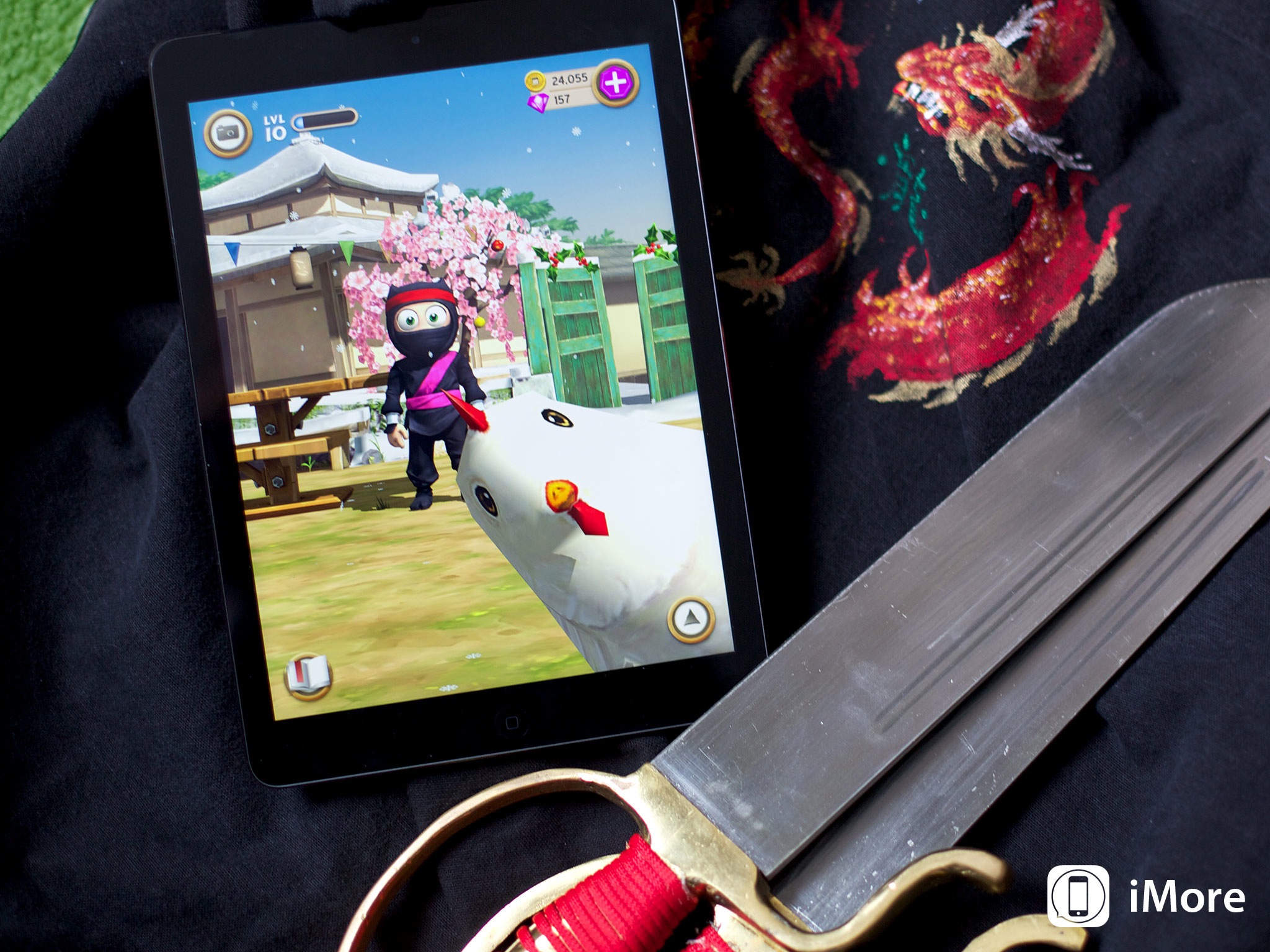Clumsy Ninja and Zynga: Why we can't have nice indie game developers

Mobile game developers left and right are falling into the hands of bigger competitors. Is this a new trend or part of the natural life cycle of the mobile game market?
Big fish eat smaller fish, and get eaten by bigger fish still. It's as true in the pond behind your house as it is in the corporate world. We've seen it happen over and over again since the inception of the App Store, where small developers get acquired by larger publishers. While that cycle of acquisition may be part of the natural life of a startup and certainly can lend some benefits, it can also be a complete innovation-killer. Let's have a look at both sides.
It's often easy to think of an indie game developer as anxious to attract the attention of a big company — after all, who wants to live off credit card debt and ramen noodles forever? But the fact is that a lot of independent developers are indie for a reason.
But as you grow a company, your responsibility to your employees and your investors forces you to consider other possibilities. And sometimes, it's just plain good sense to be acquired, especially if you know the 800 pound gorilla that's eying you is just going to crush you out of the market otherwise.
You make your bed, you lie in it. Sometimes these deals pay off, and indie game developers end up with comfortable jobs or are able to walk away with big money they can use to start up their next great idea. Sometimes they get screwed.
Cautionary tales
Here's a good example of a cautionary tale about what happens when an independent game developer gets acquired: One of the App Store's early success stories came from New York-based Freeverse, a long-time Mac game developer once known for offbeat titles like Burning Monkey Solitaire. The company struck it big with early App Store releases. Eventually they fell into the crosshairs of Ngmoco, a Kleiner Perkins-backed publisher founded by a former Electronic Arts exec.
Ngmoco allowed Freeverse to operate autonomously for a time, but eventually even Ngmoco attracted outside attention, getting acquired by Japanese mobile game publisher DeNA. Nowadays the Freeverse web domain forwards to Mobage.com, the social mobile games network launched by DeNA and Ngmoco. The founders of Freeverse and most of the staff that worked with them are long gone.
Zynga is another classic example. After early success with Facebook games like FarmVille, Zynga raised investment capital and lots of attention. They went on a spending spree, burning through $310 million between 2010 and 2013. Zynga acquired smaller indie studios like OMGPOP, Bonfire Studios, Buzz Monkey and others. The company came crashing back to earth last year when it began laying off staff and losing executives left and right. But that hasn't stopped the company — just last month they acquired NaturalMotion, developers of Clumsy Ninja (along with another round of layoffs).
Master your iPhone in minutes
iMore offers spot-on advice and guidance from our team of experts, with decades of Apple device experience to lean on. Learn more with iMore!
But OMGPOP, which burst on the scene with the hugely popular iOS game Draw Something? Their New York office was closed in the 2013 layoffs, and they're no more. The same story is repeated at other small studios, too.
Electronic Arts has been another major consolidating force in the mobile game market. Playfish, Chillingo, Firemint, Popcap — they've spread their considerable money around the mobile space as they acquire talent, too. In fairness, though, EA has mostly kept those efforts distinct, using its own marketing and branding when it's appropriate. The problem, of course, is that EA has required its subsidiaries to use really obnoxious in app purchase systems to keep gamers paying to play. But that may have happened for some of these games regardless.
A big umbrella can protect you from the rain
Lest we think it's all horrible, acquisitions can benefit small studios, too. The mobile game market has become dramatically more competitive as more and more customers flock to app stores to get their game fixes, and large studio budgets give small shops the ability to focus on game development, letting other people worry about more esoteric problems like marketing.
Big publishers can also help small subsidiaries acquire licenses and IP they'd never be able to get on their own, enabling some formerly indie devs to produce "dream games" based on popular properties of yore or modern movie, TV show and other tie-ins, raising the profile of their games.
Small developers that work with a larger publisher are also able to tie in to common infrastructure and platform development to help offset the cost of not just producing but also hosting games with big social components. They're better able to react to issues like scaling.
A big company can cushion its smaller subsidiaries against fluctuations in the marketplace, but sometimes small studios are the first to get cut loose when a big fish starts losing money. So it's a double-edged sword.
Caveat emptor
Over the years I've seen many gamers get upset about this cycle of innovation, acquisition, consolidation and evenutally, contraction. A lot of times that anger and disappointment is accompanied by a sense of entitlement: I've invested money and time in this game, so my opinion matters.
No, it really doesn't — at the end of the day, your transaction with the company ended the minute you paid for the game, and that's all there is. You have no more a say in the way they run their business than they have a say in how you run yours. Obviously you're entitled to spend future dollars how you see fit, which may explain why a game like Draw Something did so tremendously well while Draw Something 2 didn't.
But this cycle didn't start with mobile games — it's gone on in the console market for years, and has been going on in with the PC since their was a PC game industry.
It won't stop — it's the cost, and the risk, of doing business in the video game market.
So caveat emptor: let the buyer beware. Don't assume that the company you buy a game from today is going to be around tomorrow. When it comes to games, you have to be a bit mercenary about these things.

